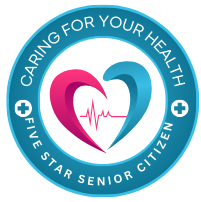Facilities available in our Old Age Homes for Senior Citizens
1. Accommodation
- Private or shared rooms with essential furniture and bedding.
- Attached or shared bathrooms with senior-friendly fittings (non-slip flooring, grab bars, etc.).
- Clean and hygienic living spaces.
- Heating, cooling, and ventilation systems for comfort.
2. Nutrition and Meals
- Nutritious and well-balanced meals tailored to dietary needs.
- Special diet plans for those with specific health conditions like diabetes or hypertension.
- Regular meal timings with snacks or beverages in between.
3. Healthcare Services
- Regular health checkups and monitoring by medical professionals.
- On-site nurses or caregivers available 24/7.
- Access to doctors and specialists.
- Emergency medical services, including ambulances.
- Physiotherapy and rehabilitation services for mobility issues.
4. Assistance with Daily Activities
- Help with bathing, dressing, grooming, and other personal hygiene tasks.
- Support with mobility and transportation for those with physical limitations.
- Medication management and reminders.
5. Social and Recreational Activities
- Group activities like yoga, meditation, and exercise.
- Entertainment options such as music, TV, movies, and cultural programs.
- Indoor games like chess, cards, or carrom, and outdoor activities like gardening or walks.
- Celebrations of festivals, birthdays, and other special occasions.
- Library or reading rooms for leisure and mental stimulation.
6. Emotional and Psychological Support
- Counseling services to address loneliness, anxiety, or depression.
- Opportunities for interaction and companionship with other residents.
- Spiritual or religious support, such as prayer rooms or visits by clergy.
7. Safety and Security
- 24/7 staff presence to ensure safety and attend to emergencies.
- CCTV surveillance in common areas.
- Secure premises with gates and controlled access.
- Emergency alert systems (panic buttons or alarms).
8. Transportation
- Arrangements for trips to hospitals, places of worship, or social outings.
- Shuttle services for group activities or errands.
9. Specialized Care for Specific Needs
- Dementia or Alzheimer’s care units for memory-impaired residents.
- Hospice care for terminally ill seniors.
- Facilities for bedridden or severely disabled individuals.
1. Accommodation
- Private or shared rooms with essential furniture and bedding.
- Attached or shared bathrooms with senior-friendly fittings (non-slip flooring, grab bars, etc.).
- Clean and hygienic living spaces.
- Heating, cooling, and ventilation systems for comfort.
2. Nutrition and Meals
- Nutritious and well-balanced meals tailored to dietary needs.
- Special diet plans for those with specific health conditions like diabetes or hypertension.
- Regular meal timings with snacks or beverages in between.
3. Healthcare Services
- Regular health checkups and monitoring by medical professionals.
- On-site nurses or caregivers available 24/7.
- Access to doctors and specialists.
- Emergency medical services, including ambulances.
- Physiotherapy and rehabilitation services for mobility issues.
4. Assistance with Daily Activities
- Help with bathing, dressing, grooming, and other personal hygiene tasks.
- Support with mobility and transportation for those with physical limitations.
- Medication management and reminders.
5. Social and Recreational Activities
- Group activities like yoga, meditation, and exercise.
- Entertainment options such as music, TV, movies, and cultural programs.
- Indoor games like chess, cards, or carrom, and outdoor activities like gardening or walks.
- Celebrations of festivals, birthdays, and other special occasions.
- Library or reading rooms for leisure and mental stimulation.
6. Emotional and Psychological Support
- Counseling services to address loneliness, anxiety, or depression.
- Opportunities for interaction and companionship with other residents.
- Spiritual or religious support, such as prayer rooms or visits by clergy.
7. Safety and Security
- 24/7 staff presence to ensure safety and attend to emergencies.
- CCTV surveillance in common areas.
- Secure premises with gates and controlled access.
- Emergency alert systems (panic buttons or alarms).
8. Transportation
- Arrangements for trips to hospitals, places of worship, or social outings.
- Shuttle services for group activities or errands.
9. Specialized Care for Specific Needs
- Dementia or Alzheimer’s care units for memory-impaired residents.
- Hospice care for terminally ill seniors.
- Facilities for bedridden or severely disabled individuals.
